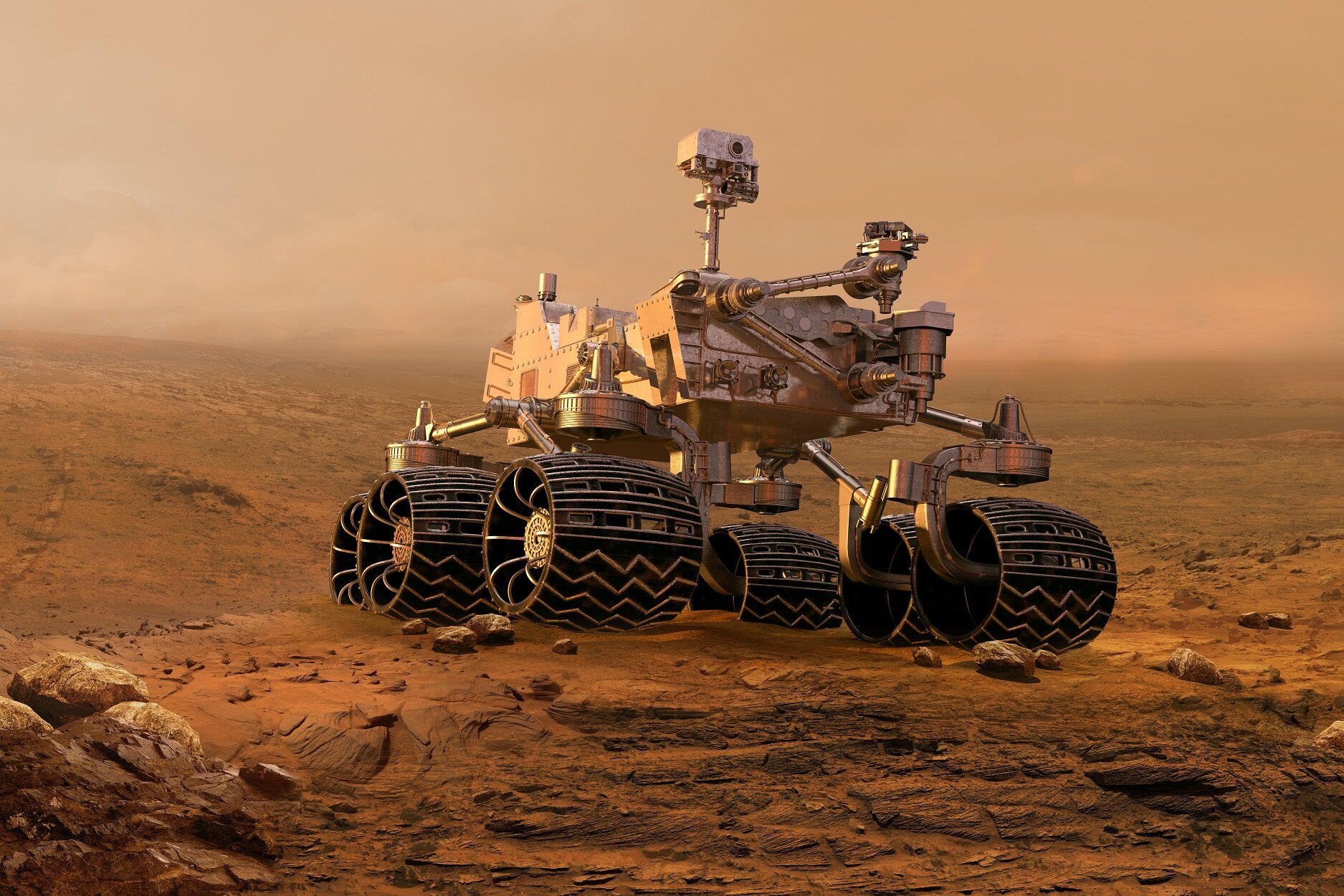Scientists discovered organic compounds that could have been created by microbial life on Mars.
Comments and suggestions are welcome! Don't hesitate and leave a comment on our comment section down below the article
Image Credit: Corona Borealis Studio via Shutterstock - HDR tune by Universal-Sci
The Mars Curiosity Rover found organic compounds called thiophenes on Mars. Thiophene is an organic compound that can be produced in various manners. Generally speaking, the different ways for thiophene to come about can be divided into two main scenarios, biological or abiotic (non-biological).
Researchers Jacob Heinz and Dirk Schulze-Makuch think the existence of thiophenes on Mars would be consistent with the presence of early life on Mars. They are suggesting that microbial life may have played a part in the occurrence of the compound in Martian soil. Their ideas are substantiated in a new paper published in the science journal: Astrobiology.
An example of an abiotic (non-biological) origin scenario is that thiophenes were produced trough meteor impacts. Besides that, thiophenes can be created through thermochemical sulfate reduction, a proceeding that involves a set of compounds being heated to 120 degrees Celsius or more. This is a so-called abiotic process: no life is involved.
Tthiophene can also arise through life, akin to what we see happening on our own planet. The biological scenario in the case of Mars takes us back more than three billion years. At that time, Mars was a lot warmer and wetter than it is today and microorganisms may have existed that would have aided a sulfate reduction process resulting in thiophenes. Besides that, there are other possible biological scenarios where the thiophenes themselves were broken down by microbes.
Image Credit: Dotted Yeti via Shutterstock - HDR tune by Universal-Sci
In an interview with the WSU Insider, Schulze‑Makuch explained that he and his colleague identified an assortment of biological possible explanations for thiophenes that seem likelier than chemical ones. However, he did note that conclusive proof is still needed. Thiophenes found on Earth mostly have biological origins, but when it comes to the ones found in Martian soil, the bar to prove is much more substantial.
Although the Mars Curiosity Rover presented a lot of hints for a biological origin, it uses procedures that break larger molecules up into parts, so researchers can only look at the resulting pieces. Further research is therefore needed. According to Schulze-Makcch and his colleagues, a future Mars rover called Rosalind Franklin might put some more light on the origins of Martian thiophenes as it will have a better molecule analyzer on board.
All things considered, Schulze-Makuch and Heinz might be on to something. We can't wait for the Rosalind Franklin rover to get us more detailed information on these intriguing Martian molecules. Its launch is planned for July this year. As always, we will keep you posted.
Sources and further reading: Thiophenes on Mars: Biotic or Abiotic Origin? / Thiophene / Rosalind Franklin Rover / WSU Insider
Featured Articles:
If you enjoy our selection of content please consider following Universal-Sci on social media











